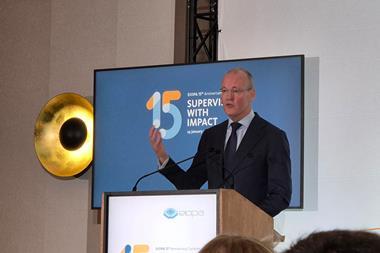GLOBAL - Nordic investors do not understand why they should invest in expensive UCITS, a member of SEB's investment team has said.
Charlotte Bonde Tamm, head of capital introduction at SEB, said the region's investors were knowledgeable about hedge fund investment and preferred other approaches over the collective investment vehicles.
"Nordic investors know who they are dealing with, and they find UCITS to be pretty expensive, so they don't see why they need to pay more for the wrapper," she told IPE.
According to SEB's Nordic Hedge Fund Investor survey, the region's pension funds represent almost two-fifths of hedge fund investments in the Nordic countries, but still possess a lot of growth potential.
Of the $636bn (€521bn) of assets represented by the respondents participating in the survey, $253bn, or 39%, belonged to the region's pension providers.
Tamm said there were many larger mandates that could still be given to hedge funds in the region.
"What we feel is that there is really a lot of money here on the table," she added.
However, she conceded pension funds already played a significant role in the market.
"In this region, hedge fund investment has been taking place for quite some time now," she said.
"Nordic pension funds are actually pretty active in hedge funds, and both they and other institutional investors' have a fairly high level of knowledge when it comes to hedge funds."
More than 40% of respondents expected to increase their exposure to hedge funds over the course of the current year, something head of prime brokerage Jonas Lindgren attributed to the familiarity many investors had with their hedge fund counterparts when asked why investors only waited an average of 18 months before investing in a new vehicle.
He said: "The cost of investing in a new start-up fund in the Nordic area, where you have a manager who is very well known to the market, shortens that time compared with start-ups in the US or Switzerland, or a market where the individual managers are less well known to investors."
According to SEB's survey, asset managers invested the most in hedge funds, while corporate banks shied away, allocating less than 1% of surveyed assets toward vehicles such as UCITS.
More than half of investors also accepted that lock-up strategies could be beneficial, with 44% avoiding hedge funds that proposed such a model.
Tamm said: "If it is a less liquid strategy, the Nordic investor, knowing the manager, understands the need for the lock-up to make the investments achieve what they are supposed to achieve."
She added that while the last few years had seen an increased interest in transparency, only 14% of respondents demanded increased transparency from Nordic vehicles that were traditionally more open than their counterparts.












